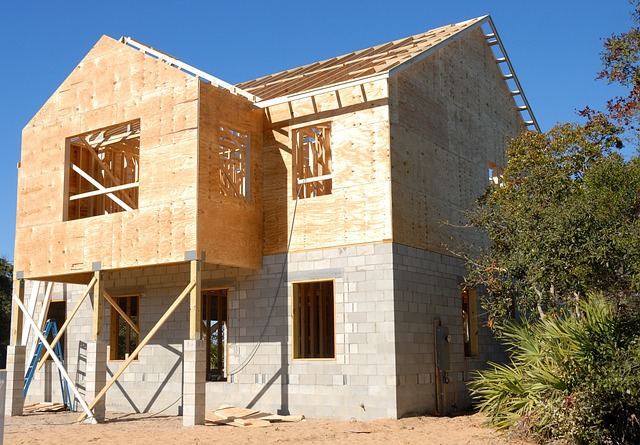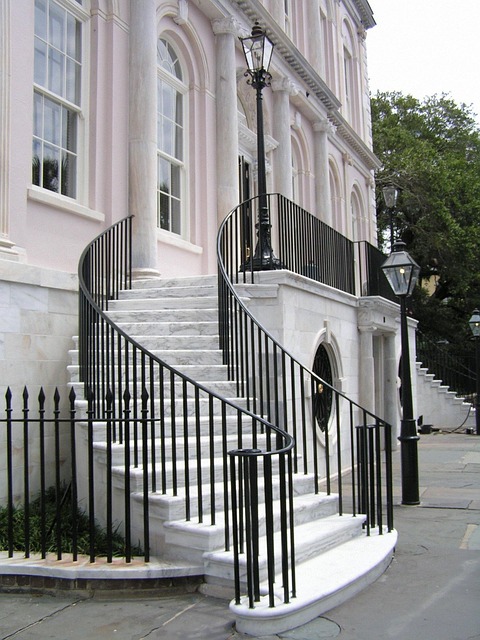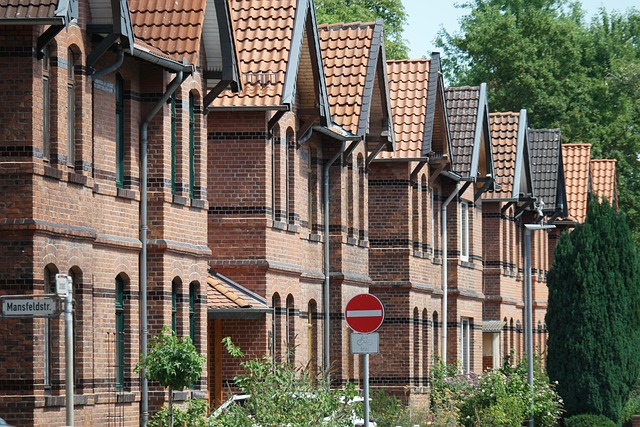Executive Condo Prices: Market Trends & Eligibility Insights for Smart Investors
Understanding Executive Condo Resale Eligibility is key to navigating a complex market of premium properties. Strict criteria, including residency duration and nationality restrictions, aim to stabilize prices and prevent frequent flipping. Market dynamics are…….

Understanding Executive Condo Resale Eligibility is key to navigating a complex market of premium properties. Strict criteria, including residency duration and nationality restrictions, aim to stabilize prices and prevent frequent flipping. Market dynamics are shaped by location, project age, demand, liquidity, and investor sentiment, with historical trends showing steady appreciation. Demographic shifts drive up demand for affordable luxury living, while government policies control pricing and accessibility. The interplay of supply and demand, coupled with unique amenities, influences resale eligibility and property values. Staying informed about these factors is crucial for buyers and sellers in this competitive segment.
“Uncover the dynamic world of executive condos and their price trends in this comprehensive guide. We explore the intricate factors shaping luxury real estate, from eligibility criteria and market dynamics to demographic influences and government policies. Location-specific insights reveal unique patterns, while historical analysis provides valuable forecasts. Discover how supply and demand interplay, and understand the value proposition of premium amenities. This article delves into the key drivers and predictions for executive condo resales, offering a must-read perspective for investors and enthusiasts alike.”
- Understanding Executive Condo Resale Eligibility Criteria
- Market Dynamics: Factors Influencing Price Trends
- Location-Specific Considerations for Executive Condos
- Historical Analysis: Past Performance and Future Projections
- Demographic Shifts and Their Impact on Pricing
- Government Policies and their Role in Price Regulation
- The Effect of Supply and Demand on Executive Condo Prices
- Luxury Amenities and Their Reflective Value
- Case Studies: Notable Executive Condo Resale Transactions
- Predictions for the Evolving Executive Condo Market
Understanding Executive Condo Resale Eligibility Criteria

Understanding the executive condo resale eligibility criteria is key to navigating the market for these premium properties. To qualify for resale, buyers must meet specific requirements set by the Housing & Development Board (HDB). These criteria typically include residency duration, where owners need to have resided in the executive condo for a certain period before it can be sold. The purpose of this rule is to ensure stability and prevent frequent flipping of these high-value units.
Additionally, there might be restrictions on who can purchase an executive condo after resale. In many cases, only Singapore citizens or permanent residents are eligible to buy these properties, maintaining the exclusivity often associated with executive condos. These eligibility criteria are designed to balance the demand for such luxurious living spaces while preserving affordability for a broader segment of the population.
Market Dynamics: Factors Influencing Price Trends

The market dynamics for executive condos are shaped by various factors that play a significant role in price trends. One key aspect is the eligibility for resale, which can be influenced by location and project age. Condos in prime areas or newer developments often command higher prices due to their desirable features like convenience to city amenities, quality construction, and modern design. In contrast, units in more distant locations or older buildings might face price pressures from reduced demand and potential maintenance costs.
Additionally, market liquidity and buyer sentiment contribute to price fluctuations. High liquidity, driven by a healthy secondary market, allows for easier reselling and can support higher prices. Conversely, low liquidity due to limited resale opportunities or buyer hesitation may lead to price adjustments. Executive condo resale eligibility thus interacts with broader market forces, creating a complex environment where location, age, demand, and investor sentiment all interact to shape price trends.
Location-Specific Considerations for Executive Condos

The market for executive condos is not uniform; prices and resale eligibility can vary greatly depending on location. Factors like urban core proximity, view amenities, and surrounding infrastructure heavily influence value. Condos in central business districts or areas with high-end developments tend to command premium prices due to their convenience and prestige. These locations often have strict criteria for executive condo resale eligibility, ensuring a consistent market value. Conversely, condos in outlying areas might offer more affordable options but may face challenges in terms of resale value and demand.
Understanding location-specific considerations is crucial when assessing executive condo price trends. Beyond geographical advantages, specific developments within a region can have unique selling points—a luxurious pool, lush landscaping, or proximity to high-end retailers—that drive up prices. Similarly, changes in the local economy or plans for urban renewal can impact resale eligibility and pricing dynamics. Therefore, investors and buyers should meticulously evaluate both macro and micro factors when navigating the executive condo market.
Historical Analysis: Past Performance and Future Projections

The historical analysis of executive condo resale eligibility reveals a fascinating journey in pricing trends. Over the years, these properties have experienced significant fluctuations, influenced by economic shifts and market dynamics. Historically, executive condos have been sought after for their premium locations and high-end finishes, leading to strong initial sales and steady appreciation. This can be attributed to the growing demand for luxury living among professionals and families seeking a balance between urban convenience and home comfort.
Looking ahead, future projections suggest that the market for executive condos will continue to be robust. As city centers become more densely populated, limited supply and rising construction costs could drive up prices further. However, factors such as interest rate changes and economic downturns may also impact resale eligibility, making it crucial for potential buyers to stay informed about market trends. The key lies in understanding the intricate relationship between location, amenities, and price performance to make sound investment decisions in this exclusive segment of the real estate market.
Demographic Shifts and Their Impact on Pricing

Demographic shifts play a significant role in shaping the executive condo resale eligibility and pricing trends. As cities evolve, we witness an influx of young professionals and families seeking affordable luxury living options. This change in population dynamics directly influences the demand for executive condos, driving up prices over time. With more buyers entering the market, especially millennials who value urban living and are willing to invest in premium properties, developers often respond by introducing exclusive amenities and modern designs to attract this demographic.
These shifting demographics also contribute to the diverse pricing strategies observed in the executive condo market. Factors such as location, floor plans, view, and additional facilities impact resale values. For instance, condos situated in prime areas with easy access to transportation hubs or popular entertainment districts may command higher prices due to their convenience and desirability. Moreover, changes in government policies regarding foreign investment and ownership can further influence pricing, as these regulations often attract or deter specific buyer groups, thereby affecting the overall market dynamics.
Government Policies and their Role in Price Regulation

Government policies play a significant role in regulating executive condo prices and ensuring fair market practices. One key aspect is the implementation of guidelines for Executive Condo Resale Eligibility, which can impact overall pricing dynamics. These policies often include restrictions on foreign ownership, purchase limits, and cooling-off periods to prevent speculative investments. By controlling resales, authorities aim to stabilize prices and make these properties more accessible to local buyers.
Additionally, government interventions like stamp duties or property taxes can influence purchasing decisions, thereby affecting executive condo price trends. Such measures are sometimes employed to cool down a hot market or encourage long-term ownership, which can result in more stable pricing over time. These policies require careful consideration to balance the needs of various stakeholders, including buyers, developers, and the government itself.
The Effect of Supply and Demand on Executive Condo Prices

The dynamic between supply and demand plays a pivotal role in shaping executive condo prices. A surge in demand for these premium properties, often driven by affluent professionals seeking luxurious living, can significantly increase pricing. This is further exacerbated by limited availability, as executive condos are typically exclusive and well-sought after. On the other hand, an excess of supply could lead to a market correction, where prices may stabilize or even decrease to attract buyers.
The impact of these factors is particularly noticeable in regions with stringent regulations regarding Executive Condo Resale Eligibility, which further narrows down the available options and can intensify demand-driven price hikes. As such, understanding this supply-demand equilibrium is crucial for both prospective buyers looking to invest or inhabit these properties, and developers aiming to navigate the market effectively.
Luxury Amenities and Their Reflective Value

In the competitive executive condo market, luxury amenities play a significant role in shaping property values and resale eligibility. These features, such as spa-like bathrooms, smart home technology, and exclusive resident-only clubs, not only enhance the living experience but also reflect the desirability of the property among buyers.
When an executive condo offers high-end amenities, it becomes a sought-after residence, attracting a premium price point. These luxurious additions can increase the overall value of the unit, making it more attractive to potential investors and buyers looking for top-tier accommodations. As a result, properties with well-designed and impressive amenities tend to have better resale eligibility, ensuring that owners can secure a strong return on their investment.
Case Studies: Notable Executive Condo Resale Transactions

In recent years, notable executive condo resale transactions have shed light on the shifting dynamics within the market. These high-profile sales often involve units in prime locations, showcasing the strong demand from elite buyers. Case studies reveal that eligibility for executive condo resale is determined by various factors such as ownership period and the original purchase price. For instance, properties acquired through the Executive Condo Scheme in Singapore typically have a minimum occupancy period before they can be resold, with strict rules around who can buy them subsequently.
These transactions highlight the diversity of buyers within the executive condo market. While some high-net-worth individuals seek to capitalize on price appreciation, others may be downsizing or relocating for personal reasons. Understanding these trends is crucial for both prospective buyers and sellers navigating the Executive Condo Resale Eligibility requirements, as it allows them to make informed decisions in a competitive yet lucrative segment of the real estate market.
Predictions for the Evolving Executive Condo Market

The market for executive condos is poised for a dynamic evolution, with several factors influencing its trajectory. One key aspect to watch is the changing landscape of resale eligibility. As demand continues to outpace supply, developers may introduce new projects that cater to the high-end buyer, further driving up prices and exclusivity. The ongoing digital transformation could also attract more remote workers seeking luxurious, amenity-rich homes, thus maintaining or even increasing the desirability of executive condos.
Predictably, government policies regarding property ownership and investment will play a significant role. Changes in regulations related to Executive Condo Resale Eligibility can impact market liquidity and accessibility. Additionally, economic trends and global events could sway buyer sentiment, leading to fluctuations in pricing. However, given the robust demand from well-afforded buyers and investors, the executive condo segment is expected to remain a sought-after option for those seeking premium urban living.
In conclusion, understanding the intricate factors that influence executive condo price trends is paramount for investors and buyers alike. From eligibility criteria and market dynamics to demographic shifts and government policies, each element plays a crucial role in shaping the landscape of executive condos. By considering historical analyses, location-specific nuances, and the impact of supply and demand, along with the allure of luxury amenities, one can navigate this evolving market with confidence. The presented case studies offer valuable insights into notable resale transactions, further emphasizing the diverse factors at play. As we look ahead, predictions suggest a dynamic future for executive condos, presenting both opportunities and challenges in today’s competitive real estate arena.







